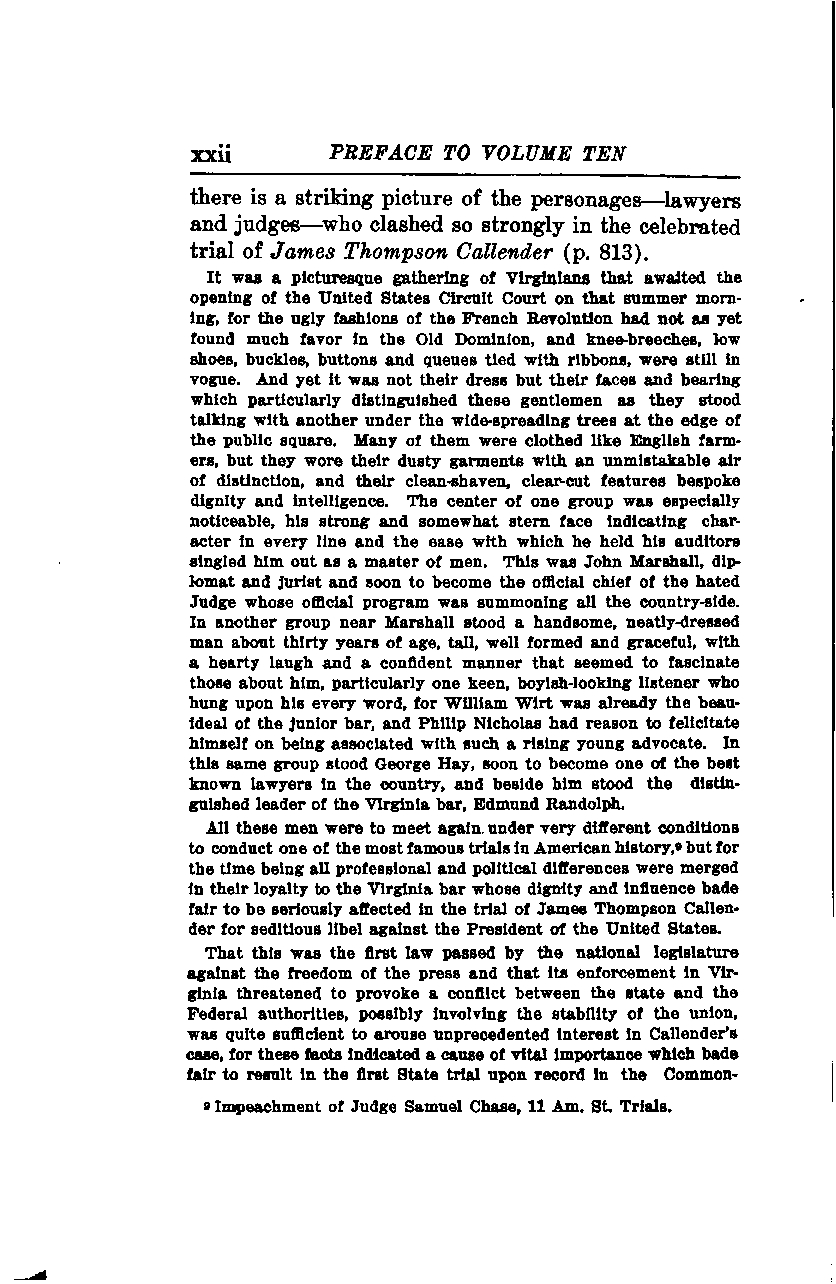
Here is the translated text as follows:
Preface to Volume Ten
There is a striking picture of the personages—lawyers and judges—who clashed so strongly in the celebrated trial of James Thompson Callender (p. 813).
It was a picturesque gathering of Virginians that awaited the opening of the United States Circuit Court on that summer morning. The ugly fashions of the French Revolution had not yet found much favor in the Old Dominion, and kneebreeches, low shoes, buckles, buttons, and queues tied with ribbons were still in vogue. Yet, it was not their dress but their faces and bearing that particularly distinguished these gentlemen as they stood talking with one another under the wide-spreading trees at the edge of the public square. Many of them were clothed like English farmers, but they wore their dusty garments with an unmistakable air of distinction, and their clean-shaven, clear-cut features bespoke dignity and intelligence.
The center of one group was especially noticeable, his strong and somewhat stern face indicating character in every line. The ease with which he held his auditors singled him out as a master of men. This was John Marshall, diplomat and jurist, soon to become the official chief of the hated judge whose official program was summoning all the countryside. In another group near Marshall stood a handsome, neatly-dressed man about thirty years of age, tall, well-formed, and graceful, with a hearty laugh and a confident manner that seemed to fascinate those around him, particularly one keen, boyish-looking listener who hung upon his every word. William Wirt was already the beau-ideal of the junior bar, and Philip Nicholas had reason to felicitate himself on being associated with such a rising young advocate. In this same group stood George Hay, soon to become one of the best-known lawyers in the country, and beside him stood the distinguished leader of the Virginia bar, Edmund Randolph.
All these men were to meet again under very different conditions to conduct one of the most famous trials in American history. For the time being, all professional and political differences were merged in their loyalty to the Virginia bar, whose dignity and influence were at risk of being seriously affected in the trial of James Thompson Callender for seditious libel against the President of the United States.
That this was the first law passed by the national legislature against the freedom of the press, and that its enforcement in Virginia threatened to provoke a conflict between the state and the federal authorities, possibly involving the stability of the Union, was quite sufficient to arouse unprecedented interest in Callender’s case. These facts indicated a cause of vital importance that promised to result in the first state trial on record in the Commonwealth.
---